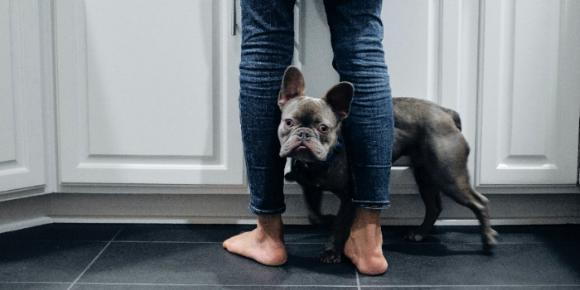Adopting an Adult Dog Checklist

- posted: Dec. 30, 2023
Initial Days After Adoption
Veterinary Examination
- Schedule a thorough veterinary examination to assess your new dog's overall health.
- Discuss vaccinations, deworming, and any specific medical history provided by the shelter.
Identification and Registration
- Ensure your dog has proper identification, including a collar with an ID tag and a microchip.
- Update contact information associated with the microchip.
Establish a Routine
- Set up a consistent daily routine for feeding, walks, playtime, and bathroom breaks.
- Gradually introduce your dog to their new environment, starting with one room and expanding gradually.
Nutritional Assessment
- Evaluate the diet your dog was on at the shelter and discuss any necessary adjustments with your veterinarian.
- Establish a feeding schedule and portion sizes appropriate for your dog's size and activity level.
Basic Training and Socialization
Basic Commands
- Begin basic obedience training, focusing on commands like sit, stay, and recall.
- Use positive reinforcement techniques and reward-based training.
Socialization
- Introduce your dog to various environments, people, and other animals gradually.
- Monitor their reactions and provide positive experiences to build confidence.
Crate Training
- If not already crate trained, introduce your dog to a crate as a safe and comfortable space.
- Use positive reinforcement to associate the crate with positive experiences.
Veterinary Care and Preventive Measures
Vaccinations and Preventives
- Ensure your dog is up-to-date on vaccinations and receive a schedule for boosters.
- Discuss and implement preventive care for parasites (fleas, ticks, heartworm, and intestinal worms).
Spaying/Neutering
- If not already spayed or neutered, discuss the optimal timing for the procedure with your veterinarian.
Regular Care and Well-being
Grooming Routine
- Establish a grooming routine, including brushing, nail trimming, and dental care.
- Schedule professional grooming appointments if necessary.
Regular Exercise
- Engage in regular exercise appropriate for your dog's breed and energy level.
- Provide mental stimulation through interactive toys and puzzle games.
Veterinary Check-ups
- Schedule regular veterinary check-ups to monitor your dog's health and address any concerns promptly.
- Discuss a personalized preventive care plan with your veterinarian.
Weight Management
- Monitor your dog's weight and body condition, adjusting their diet and exercise accordingly.
Behavioral Monitoring
- Observe your dog's behavior for any signs of anxiety, aggression, or fear.
- Seek professional help if you encounter behavioral challenges.
Building Trust
- Allow time for your dog to acclimate to their new home and build trust with you.
- Use positive reinforcement to reinforce good behavior and create a positive bond.
Adopting an adult dog is a rewarding experience, and this checklist serves as a guide to ensure their smooth transition into your home. Regular communication with the doctors at Family Pet Veterinary clinic, and patience in understanding your dog's needs will contribute to a happy and healthy life together.
Clinic hours
7:30 am - 5:00 pm
7:30 am - 5:00 pm
7:30 am - 12:00 pm
7:30 am - 6:00 pm
7:30 am - 5:00 pm
8:00 am - 12:00 pm
Closed
